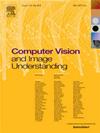Illumination-aware and structure-guided transformer for low-light image enhancement
IF 4.3
3区 计算机科学
Q2 COMPUTER SCIENCE, ARTIFICIAL INTELLIGENCE
引用次数: 0
Abstract
In this paper, we proposed a novel illumination-aware and structure-guided transformer that achieves efficient image enhancement by focusing on brightness degradation and precise high-frequency guidance. Specifically, low-light images often contain numerous regions with similar brightness levels but different spatial locations. However, existing attention mechanisms only compute self-attention using channel dimensions or fixed-size spatial blocks, which limits their ability to capture long-range features, making it challenging to achieve satisfactory image restoration quality. At the same time, the details of low-light images are mostly hidden in the darkness. However, existing models often give equal attention to both high-frequency and smooth regions, which makes it difficult to capture the details of deep degradation, resulting in blurry recovered image details. On the one hand, we introduced a dynamic brightness multi-domain self-attention mechanism that selectively focuses on spatial features within dynamic ranges and incorporates frequency domain information. This approach allows the model to capture both local details and global features, restoring global brightness while paying closer attention to regions with similar degradation. On the other hand, we proposed a global maximum gradient search strategy to guide the model’s attention towards high-frequency detail regions, thereby achieving a more fine-grained restored image. Extensive experiments on various benchmark datasets demonstrate that our method achieves state-of-the-art performance.
用于弱光图像增强的照明感知和结构导向变压器
在本文中,我们提出了一种新型的照明感知和结构引导变压器,该变压器通过关注亮度退化和精确的高频引导来实现有效的图像增强。具体来说,低光图像通常包含许多具有相似亮度水平但不同空间位置的区域。然而,现有的注意机制仅使用通道尺寸或固定大小的空间块来计算自注意,这限制了它们捕获远程特征的能力,从而难以获得令人满意的图像恢复质量。同时,低光图像的细节大多隐藏在黑暗中。然而,现有的模型往往对高频区域和光滑区域给予同等的关注,这使得很难捕捉深度退化的细节,导致恢复的图像细节模糊。一方面,我们引入了一种动态亮度多域自关注机制,选择性地关注动态范围内的空间特征并融合频域信息。这种方法允许模型捕获局部细节和全局特征,恢复全局亮度,同时更加关注具有类似退化的区域。另一方面,我们提出了一种全局最大梯度搜索策略,将模型的注意力引导到高频细节区域,从而获得更细粒度的恢复图像。在各种基准数据集上进行的大量实验表明,我们的方法达到了最先进的性能。
本文章由计算机程序翻译,如有差异,请以英文原文为准。
求助全文
约1分钟内获得全文
求助全文
来源期刊

Computer Vision and Image Understanding
工程技术-工程:电子与电气
CiteScore
7.80
自引率
4.40%
发文量
112
审稿时长
79 days
期刊介绍:
The central focus of this journal is the computer analysis of pictorial information. Computer Vision and Image Understanding publishes papers covering all aspects of image analysis from the low-level, iconic processes of early vision to the high-level, symbolic processes of recognition and interpretation. A wide range of topics in the image understanding area is covered, including papers offering insights that differ from predominant views.
Research Areas Include:
• Theory
• Early vision
• Data structures and representations
• Shape
• Range
• Motion
• Matching and recognition
• Architecture and languages
• Vision systems
 求助内容:
求助内容: 应助结果提醒方式:
应助结果提醒方式:


